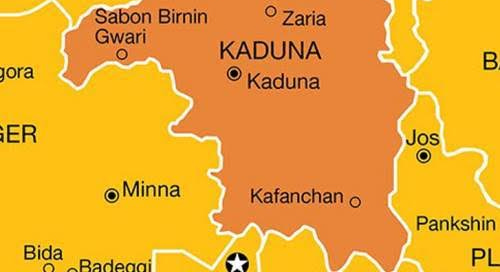Good morning. And happy Boxing day.
I hope you had a fantastic Christmas. If you were one of those who shared matching pyjamas photos yesterday, well done. The rest of us were focused on Jesus, the reason for the season.
Unfortunately, the news cycle isn’t Christmas-y. We take a look at what’s happening in southern Kaduna and also run down a number of climate stories.
If you find this newsletter useful, please support my work by sharing it with your friends.
What’s happening in southern Kaduna?
On December 18, gunmen invaded communities in southern Kaduna - Malagum 1 and Sokwong in Kaura local government area - and killed over 30 persons. They also torched over 100 houses.
According to one survivor of the attacks, the military was nearby when the attack took place.
“We manage to crawl into the bush for safety,” David Rikichi told Punch Newspaper. “From where I was, I could see the attackers having a field day inside our community, killing people, burning our houses, and shouting ‘Allah Akbar.’”
Rikichi, who is also a community leader, stressed that the attack “was well coordinated, orchestrated, and executed by professionals because all the entry points to the village where help can come from were blocked and the men used sophisticated weapons and shot sporadically.”
A dark history: The recent killings are part of a long timeline of violence in southern Kaduna between Christian (and traditional) ethnic minorities and a Muslim Hausa-Fulani majority.
In April, a southern Kaduna interest group, SOKAPU, said 148 communities in the region have been attacked in six years, displacing 200,000 natives.
SOKAPU has also alleged that killings in southern Kaduna is part of a “grand agenda” to reduce and supplant the population of ethnic minorities, “which is tantamount to ethnic cleansing and genocide.”
Nasir El-Rufai: The Kaduna state governor has argued that violence in southern Kaduna is driven by criminal motivations, as in much of the North-West, and not ethnic or religious considerations.
Viewpoint: Following the recent killings, a Leadership Newspaper editorial said land ownership, lack of trust and religious intolerance have “been identified as major triggers of the endless crisis.”
The editorial also faulted the Kaduna state government of its inability “to deal decisively with culprits and perpetrators of the killings.”
Watch: This documentary contends that a genocide is taking place in southern Kaduna.
What else is happening?
Reparations: Shell has agreed to pay $16 million to four Nigerian farmers and their communities as compensation for damage caused by pollution coming from leaks in its oil pipelines. However, the sum is being paid on the basis of “no admission of liability.”
Mathew Kukah: The Catholic Bishop said President Muhammadu Buhari is leaving Nigerians “far more vulnerable” than when he assumed office on May 29, 2015.
Godwin Emefiele: The central bank governor has reportedly returned to the country but is said to be in hiding amid plans by the Department of State Services to interrogate him over terrorism financing.
Kogi state: The government has declared a public holiday on Thursday ahead of President Buhari’s visit.
Diezani Allison-Madueke: The public can now bid for properties forfeited to the federal government, including those seized from the ex-petroleum minister.
Sabinus: The comedian shared a clip satirising APC presidential candidate, Bola Ahmed Tinubu. Many defended him after some called for a boycott of his content.
#EndSARS: A police officer shot dead a lawyer, Bolanle Raheem, in the Ajah area of Lagos. The officer fled the scene but has now been detained, a police spokesperson said.
Climate desk
Christmas rain: Nearly 46,000 people in the Philippines fled their homes to escape heavy flooding. At least two people were killed and nine other missing, officials said.
Quick fix: A startup, Make Sunsets, said it has launched weather balloons aimed at tweaking the climate, a move likely to generate widespread criticism.
Deadly temperatures: At least 38 people have died as a winter freeze grips North America.
Energy inequality: The wealthiest people in the UK consume more energy flying than the poorest use in every aspect of their lives, according to new research.
Take heed: The Lagos Chamber of Commerce and Industry said the planned supplementary budget for addressing flooding-related issues will make the “economy more vulnerable to unforeseeable shocks in an election year.”
That’s it for today. See you tomorrow with more news.




